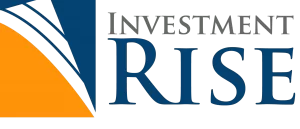What Interest Rate Movements Could Mean For Property Investors
By: Niro Thambipillay
January 31, 2019
Please note: Nothing contained in this video is to be considered financial advice. However, as property investors, anything that impacts the economy can have an impact on where we choose to invest and of course, interest rate movements are a big economic factor. So check out the video and full transcript to find out my thoughts…
Hi, it’s Niro here from Investment Rise.
And recently I got a question from one of the videos that I put out and the question was this, “Niro, do you think interest rates will rise, “and if so what impact will “that have on the property market?”
Now at Investment Rise, we’re not economists, so what I’m about to say is not financial advice at all, or tax advice or anything of that nature.
However, as a company that looks to help clients find properties in locations with great scope for capital growth, where it’s also very, very easy to get those properties rented, we do need to have an idea of what the economy is doing.
And so, interest rates do play a big part in the movement of property prices.
Now, I believe though that what’s going to happen with interest rates this time is going to be a little bit different. At least the impact of interest rates will be a little bit different than what’s happened previously.
Let me explain.
Right now, we know the Sydney and Melbourne markets have definitely slowed down.
The direction of the market has changed and those markets now are falling, and the only question people are asking is how much will those two markets fall.
Previously though, those two markets have really only fallen when interest rates have risen.
Whereas this time, those markets are falling, even when the interest rates have stayed at record lows for so long.
So, what’s caused the change of direction in the market?
Well, primarily it has been tighter lending restrictions. Firstly, on domestic investors, local investors, absolutely. But, also tightening up on foreign lending, and lending to overseas buyers.
The lending restrictions, both on domestic investors and foreign investors has had the impact that interest rate rises normally would. So the Reserve Bank of Australia hasn’t had to increase interest rates, but we do know at the moment that the Australian Dollar fell by 9 cents against the US dollar in 2018.
That’s in response to the US increasing their interest rates, and the US is still expected to increase their interest rates.
Which means that Australia will need to follow suit at some point.
So, the question, I don’t believe is if interest rates will rise, but when?
Now the only, I guess, caveat to that is if there is some major global standoff maybe between China and USand that has a rather negative impact on Australia, then maybe interest rates will fall.
But, that’s unlikely. The most likely movement, if you’ve read any of the previous Reserve Bank of Australia announcements is that interest rates will rise.
Now, mind you, we’re talking about The Reserve Bank of Australia.
Meanwhile many of the major banks, have been sneakily increasing rates, especially for investors, over the last little while.
So, we’re already seeing rates starting to rise, so as investors, we’re paying the price of higher interest rates.
Even when interest rates rise, I think what we’ll find, number one, is that it’ll be a very slow rise because the Reserve Bank is going to be very cautious about the fact that the Sydney and Melbourne markets ,which are the two biggest markets in the country are already slowing down and they don’t want send the markets into free fall, which I don’t believe is going to happen anyway.
Sowe will see interest rates rise, but it’ll be slowly, and what I think you’ll see is that it’ll have a fairly minimal impact on the Sydney and Melbourne markets because of the lending restrictions that have already been in place so far.
So, what I think will happen is, that as interest rates start to rise, you’ll probably see the lending restrictions relax, so the two will sort of compensate for each other. Therefore it will be a very minimal impact.
What it will do though, when interest rates rise, is it will take longer for the Sydney and Melbourne markets to bounce back and start their next growth phase.
When interest rates rise, then obviously affordability becomes even more challenging in our two biggest markets, and so, if and when interest rates rise, it will take longer for those two markets to bounce back.
That’s why for many of our clients who are looking to invest in property with a timeframe of 10 years or less, I always say be careful about investing in the Sydney and Melbourne markets because I’m not sure if those are the two markets that are going to come right and give you the growth that you need over the next decade.
However, what about the other markets?
Well, again, before I go into those, Sydney and Melbourne, those 2 markets, especially Melbourne, has the worst rental yield in the country right now. So, therefore, affordability is going to be a bigger issue when rates rise.
Now some of the other markets, like your Hobart and Brisbane, for example, which have much higher rental yields, those markets are going to become more attractive.
Why?
Well, when interest rates rise, people have to pay more on their mortgage, and if you want to buy an investment property where the rents cover the mortgage, you need to start looking at markets that give you a better yield, especially when you also want to get capital growth.
So, I think what you’re going to see, and this is what you’ll also see when you go back through history, is that when rates rise, the Sydney and Melbourne markets will continue their slowdown.
I think the slowdown will be longer because of rates rising, but those markets that have great potential for growth that are giving you stronger rental yields right now, those are the markets that will attract more capital, more investment, and those are the markets that you will actually start to see perform better as rates start to rise.



